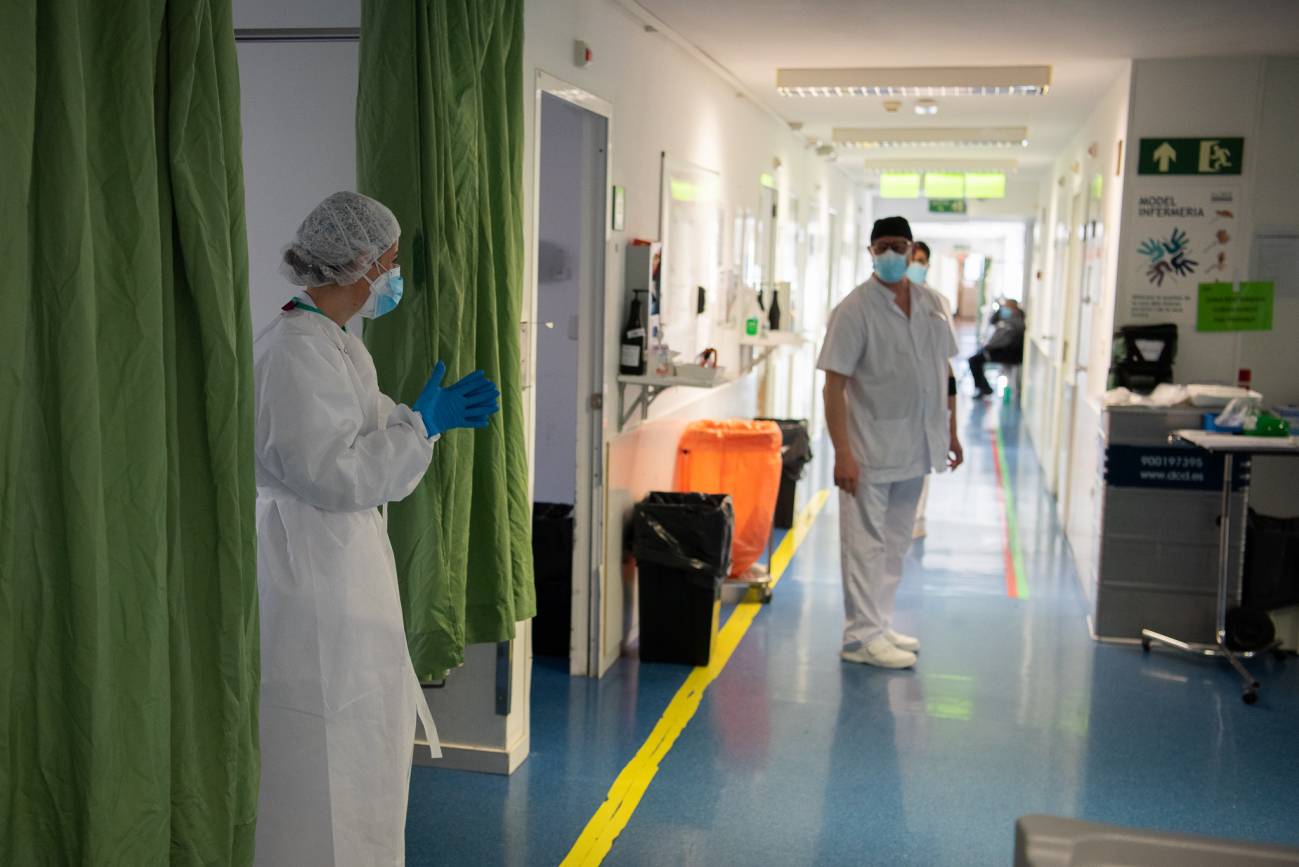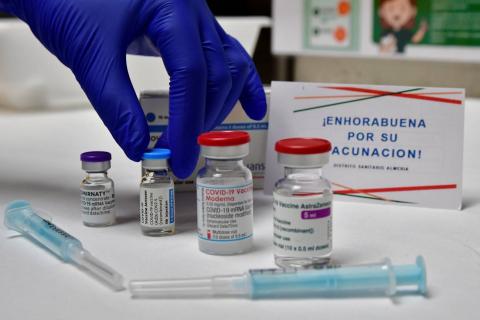Reactions: brain health of patients hospitalized for covid worsened similar to that of others admitted with similar severity
A study carried out in two hospitals in Denmark has compared the brain health of 120 patients admitted for covid over 18 months with that of other hospitalized patients with similar severity due to pneumonia, heart attack or need for intensive care, as well as with healthy people. The conclusions are that patients with covid worsened with respect to the latter, but did so in a similar way to other hospitalized persons. According to the authors, "although studies are needed to confirm these findings, brain health after covid-19 appears generally comparable to that of other diseases of similar severity."

David García Azorín - covid neuro
David García Azorín
Neurologist at the Headache Unit of the Hospital Universitario Clínico de Valladolid
This is a necessary study. It confirms some findings that many people had experienced and to which the scientific evidence pointed: some people with covid have difficulty concentrating, remembering or performing other cognitive tasks. Fortunately, this is becoming less and less common, probably related to immunity acquired at the personal or population level with vaccinations and previous infections, or with the emergence of new variants. What this study shows is that this phenomenon is not unique to covid, but that people who had other diseases with similar severity to the covid patients included in the study also had some cognitive impairment, to a degree similar to that seen in infected patients.
There has been much debate about whether SARS-CoV-2 "invades" the brain and causes irreversible brain lesions, something about which there is less and less data in favor. In many cases, it is believed that the virus acts as a "neuroturist" and gains access to the central nervous system when the barriers defending it are disrupted as a result of severe infection and multiple complications in other organs and systems, which would also occur in other patients critically ill with other diseases.
Regarding the limitations of the study, any evidence must always be put in context. First, the evaluation of the patients was done almost a year and a half after infection, which is a somewhat distant period, so we do not have much information on how these patients were doing in the most immediate months after their process. Secondly, the cognitive assessment that was done was relatively simple and might not be able to detect problems or alterations in other brain systems, although, since the same battery was used in all participants, this problem would be common to all of them. Thirdly, there could be a certain selection of patients, since only 20% of the patients who could potentially have been candidates participated, so it cannot be excluded that the other patients were better or worse off than these.
"In this matter, my only conflict of interest is collaboration with the World Health Organization".
Julián Benito León - covid neuro
Julián Benito León
Neurologist at the Department of Neurology of the Hospital Universitario 12 de Octubre and professor at the Department of Medicine of the Universidad Complutense de Madrid
The study by Costanza Peinkhofer et al. published in JAMA Network Open is, overall, a well-designed study that provides valuable information on the long-term consequences of covid-19 on brain health. Its strengths include:
- Relevant clinical context: addresses an important question about the cognitive and neurological sequelae of covid-19 compared with other serious diseases.
- Rigorous methodology: it uses a comparative approach with multiple control groups, which strengthens the validity of its findings.
- Diverse population and adequate sample size: includes patients from two academic hospitals, which increases the generalizability of the results.
- Long-term follow-up: The follow-up duration of 18 months allows observation of long-term effects.
However, as in all research, it is important to consider possible limitations:
- Population limited to two hospitals: this may affect the generalizability of results to other populations and settings.
- Observational design: although meticulous, an observational study cannot establish definitive causality.
- Potential confounding variables: although multiple factors were controlled for, there is always a risk of unmeasured variables affecting the results.
These limitations are common in clinical studies and do not significantly diminish the quality of the study, but it is important to keep them in mind when interpreting the results.
The study aligns with the growing evidence on the long-term effects of covid-19, but brings a unique comparative perspective in assessing post-covid brain health relative to other serious diseases. It stands out by showing that, although covid-19 patients experience cognitive decline, their situation is not significantly worse than that of patients hospitalized for other reasons. This is novel in that it separates covid-19-specific effects from those associated with hospitalization in general.
We are still in the infancy of knowledge about the long-term effects covid-19 may have on our brains, but the implications are significant for the understanding and treatment of covid-19 survivors. It could influence how healthcare professionals approach cognitive and neurological recovery and the formulation of public health policies to support post-covid patients. In addition, it underscores the importance of considering the long-term effects of hospitalization, regardless of cause.
Peinkhofer et al.
- Research article
- Peer reviewed
- Observational study
- People



